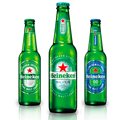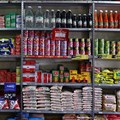South Africa's liquor and private label products have emerged as the star performers of the NIQ Quarter 3, 2023 State of the Retail Nation analysis. This is against the backdrop of South Africa's Fast-Moving Consumer Goods (FMCG) sector achieving R631bn in annual sales, (to the end of September 2023) reflecting a 14.7% increase.

Image supplied
NIQ South Africa market lead Zak Haeri says that in a significant turn of events, liquor sales have outperformed ambient food, marking the first time in three years that total liquor sales have exceeded those of ambient food recording a 21.3% (12-month) increase in value sales and a healthy 28.5% in Quarter 3 versus the same period in 2022.
“This impressive surge in liquor sales can be attributed to the reduced impact of earlier liquor bans and a resurgence in demand and with the festive season just around the corner we anticipate a further spike in liquor sales.”
Haeri adds that in the face of inflationary challenges, the alcohol industry has proven to be innovative and resilient.
“New brands, product lines, and flavours have been introduced, particularly in beer premixes, brandy, wine, whiskey, and gin, contributing to the sector's growth and adaptability to changing market conditions,” he explains.
Amongst Top Performing Supergroups, non-alcoholic beverages showed a 21% increase in sales in Quarter 3, 2023 vs the Quarter 3, 2022; personal care 20.8% and biscuits, snacks and confectionary 14.4%.
Looking at specific product type performance within the Super Group Categories the solid performance of liquor products comes through strongly with pre-mix alcohol experiencing the highest value sales growth in Quarter 3, 2023 followed by cider, brandy and cognac, and energy drinks.
Private Label powers ahead
Another key focus of NIQ’s latest analysis is the rapidly evolving Private Label (PL) Sector which has shown steady growth and has now stabilised close to the 24% mark of total sales within Modern Trade.
Cara Anderson 18 Oct 2023
Private Label now commands more than R89bn in value sales versus branded products which account for R285bn. Certain FMCG supergroups, such as ambient food and baby care, have played a crucial role in driving private label sales.
Ambient food, for instance, has seen a 14.7% increase in value, making it a significant driver of incremental sales for private label.
Haeri explains, “As consumer behaviour continues to evolve in a post-pandemic era, the private label sector in South Africa is facing a changing landscape marked by shifting spending habits, inflation challenges, and regional disparities. “However, while private label products have faced more saturated conditions in certain product categories, they continue to perform strongly in food categories, including ambient and frozen foods and our data analytics software reveals significant opportunities for private label growth in the healthcare, home care, and beverage sectors.”
Inflation hasn’t left the building
The State of the Retail Nation analysis also shows that inflationary pressure has significantly impacted South African consumers, with 15 out of the top 20 FMCG categories experiencing annual inflation exceeding 10%. Products like toilet paper, maize meal, and laundry detergents have seen inflation rates exceeding 20%.
Although some categories saw high inflation early and are now “cooling,” concerns remain around toilet paper, fruit juice, deodorants, yoghurt, potato chips, vienna sausages, sugar, eggs, soft drinks, and rice which exhibit accelerating inflation within the latest six months.
Bhargav Acharya 26 Oct 2023
The additional impact of the avian flu outbreak is expected to have a broader effect beyond just eggs; affecting chicken products, baking items, and other food products. As supply shortages persist, prices are on the rise, compounded by fewer promotions available in these categories.
Changing consumer habits
Looking ahead it’s clear that amid a challenging economic landscape, South African consumers are feeling the squeeze, with a majority experiencing the adverse effects of the current financial climate. The NIQ Mid-Year Consumer Outlook Update showed that the COVID-19 pandemic has led to a significant transformation in consumer behaviour, affecting store selection.
Haeri explains, “While pre-pandemic choices were based on work commuting routes, during the pandemic, focus shifted to stores located near homes. A hybrid model of store choice is now emerging as home, and work routines settle.
“These shifts in consumer behaviour highlight the resilience and adaptability of South Africans as they navigate the economic hardships and uncertainties that lie ahead and the opportunity for local manufacturers and retailers to tap into these altered need states with innovative product solutions,” he concludes.





































